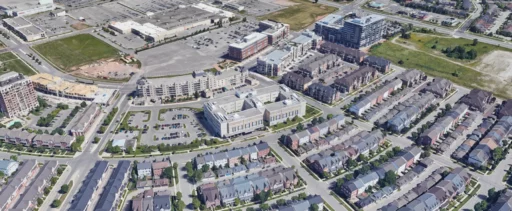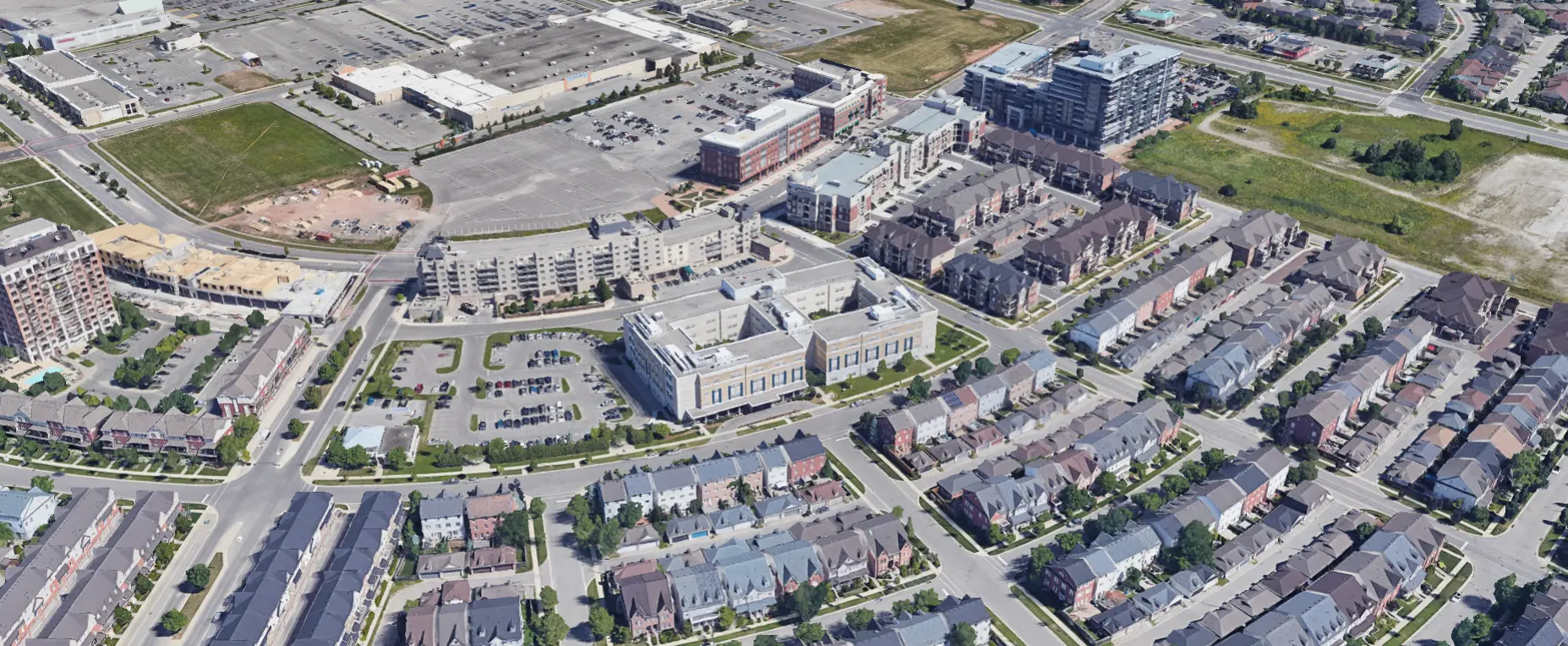Post Inn Village (203 Georgian Drive, Oakville) is owned and operated by Halton Region. There are approximately 230 beds.
Inspection Reports for Post Inn Village
Our research team carefully reviewed and summarized inspection reports for Post Inn Village. You can read the original copies of the reports in the Government of Ontario website.
December 2023
This report details the findings of a critical incident inspection, led by Julie D’Alessandro and Cassandra Taylor. The inspection focused on fall prevention and management, resident care and support services, infection prevention and control, reporting, and complaints.
- Fall Prevention Care Plan: Initially, a resident’s fall prevention care plan did not include a necessary fall intervention, despite staff indicating its presence and its observation in practice. This non-compliance was rectified before the inspection concluded, with the care plan updated to include the fall intervention.
- Foot Care Services: The inspection identified a failure in providing scheduled preventive foot care services to a resident. A progress note highlighted concerns about the absence of foot care, and further review of the clinical chart confirmed this lapse. The Senior Nurse Manager acknowledged the oversight and the need for scheduled foot care services.
December 2022
During the course of this inspection, the inspector(s) made relevant observations, reviewed records and conducted interviews, as applicable. There were no findings of non-compliance.
October 2022
The inspection report presents several findings and orders following a comprehensive inspection process. The inspection, led by Yuliya Fedotova and assisted by Parminder Ghuman, Emily Robins, and Sydney Withers, was conducted over several days in July, August, and September 2022.
- Infection Prevention and Control (IPAC) Standards: There was a noted absence of gowns in the PPE cart for a resident on additional precaution, potentially compromising infection control measures and increasing the risk of infection spread.
- Falls Prevention and Management: The facility did not conduct post-fall assessments using a clinically appropriate instrument for residents who had fallen. This omission can prevent understanding the contributing factors to falls and hinder the prevention of future incidents, thus increasing the risk of falls and injuries.
- Plan of Care: There was a failure in collaboration among staff in developing and implementing fall prevention measures in a resident’s care plan. Additionally, the care plan wasn’t revised effectively when care set out in the plan was not effective, leading to increased risks of injury from falls due to ineffective or unimplemented prevention measures.
- Reporting Critical Incidents: The facility failed to report a critical incident involving a resident’s fall that resulted in significant changes in their health condition within the required time frame. This delay in reporting could impact the timely response and appropriate intervention for such critical incidents.
The facility was ordered to ensure specific fall prevention measures and techniques were in place and followed as per residents’ care plans. There was a need for regular audits, staff education, and documentation to ensure compliance with these orders, addressing shortcomings in the implementation and revision of care plans.
February 2022
Complaints Inspection
The inspection, conducted by inspectors Emmy Hartmann and Angela Finlay on February 25, 2022, revealed several non-compliances. These non-compliances include issues with falls prevention, management, and infection prevention and control (IPAC).
The licensee failed to ensure care as specified in the plan of care, particularly concerning occupational therapy, physiotherapy, and resident transferring. This included:
- Residents not receiving scheduled occupational therapy sessions due to staff absences with no contingency plan.
- Residents not receiving the required frequency of physiotherapy sessions.
- Incorrect transfer assistance provided to residents, leading to a risk of injury.
The licensee was ordered to ensure that the plan of care is followed, specifically concerning the frequency of occupational and physiotherapy sessions and transfer assistance. The order also included conducting weekly audits to ensure compliance and developing plans to maintain care standards during staff absences.
Critical Incident Inspection
The inspection report, conducted by Emmy Hartmann and Leah Curle, reveals a series of non-compliances, particularly concerning critical incidents and infection prevention and control measures.
The inspection covered various aspects, including falls prevention, medication, personal support services, and prevention of abuse, neglect, and retaliation.
- Infection Prevention and Control (IPAC) Program: The licensee failed to ensure all staff participated in the IPAC program during a COVID-19 outbreak from January 25, 2022, to February 8, 2022. Observations revealed staff not properly doffing personal protective equipment (PPE), including eye protection and N95 masks, as required, leading to an increased risk of infectious disease transmission.
- Safe and Secure Environment Requirements: The licensee failed to maintain a safe and secure environment, as staff were observed not wearing necessary eye protection while interacting with residents during an active COVID-19 outbreak, contrary to Directive #3 effective from December 24, 2021.
- Plan of Care: There was a failure to provide a written plan of care for a resident exhibiting risky behavior, resulting in a lack of clear directions for staff to manage the behavior, potentially contributing to interventions not being implemented.
- Policies and Records Requirements: The licensee did not comply with policies related to nursing service organization, specifically around the accessibility of treatment machine equipment, leading to a resident not receiving necessary treatment.
The licensee is ordered to ensure staff compliance with IPAC measures, particularly in doffing PPE correctly, and to conduct regular audits to verify compliance. This is in response to the observed risks during the COVID-19 outbreak.
March 2021
The inspection report, conducted by Emmy Hartmann, focused on a Critical Incident System inspection. The inspection addressed multiple incidents, including falls prevention and management, and staff to resident abuse.
- Falls Intervention Implementation: A resident at high risk for falls did not have specified falls interventions in place as outlined in their care plan. This oversight led to the resident experiencing a fall, resulting in injury, hospitalization, and subsequent decline in health status, including their passing.
- Resident with Changed Fall Risk: The care plan of a resident who had moved from moderate to high fall risk was not updated to reflect this change. This lack of update failed to initiate specific falls prevention interventions, leading to the resident falling and sustaining injuries.
- Resident with Changed Needs: Another resident’s care plan was not updated to reflect changes in their fall risk needs, although their actual requirements had changed, posing a risk of not following an outdated care plan.
The licensee was requested to prepare a voluntary plan of correction to ensure that care specified in the plan of care is provided as outlined and to reassess and revise care plans every six months or when there’s a change in residents’ care needs.
February 2020
The inspection report, by Jennifer Lauricella and Lisa Moore, was a Critical Incident System inspection. The inspection focused on incidents including falls with injury, unexpected death, and alleged staff-to-resident physical abuse.
- Plan of Care: The licensee failed to ensure that staff and others providing direct care to Resident #001 were aware of and had convenient and immediate access to the resident’s plan of care. A specific fall prevention intervention outlined in the resident’s plan was not in place during observations, and the paper copy of the care plan used by care staff was outdated and did not include this intervention. This failure was acknowledged by the PSW, RAI Coordinator, and the Director of Nursing and Personal Care, indicating a systemic issue in updating and disseminating current care plans. This failure was acknowledged by the PSW, RAI Coordinator, and the Director of Nursing and Personal Care, indicating a systemic issue in updating and disseminating current care plans.
- Reporting of Investigation Results: The licensee did not report the outcomes of an abuse or neglect investigation to the Director as required. This involved a case where a resident reported falling and alleged that a PSW failed to assist them. The investigation outcome was not included in the Critical Incident report.

